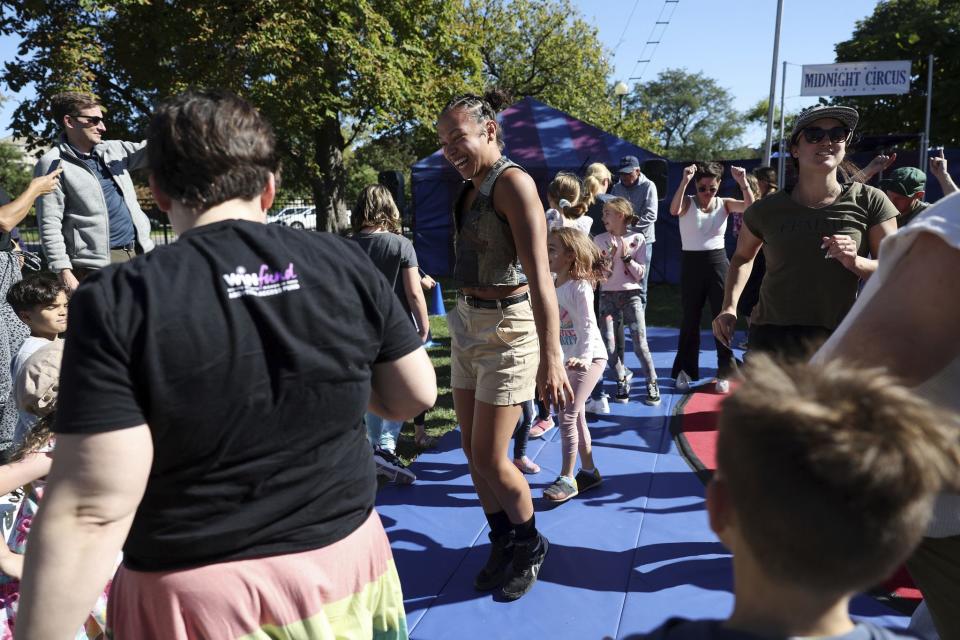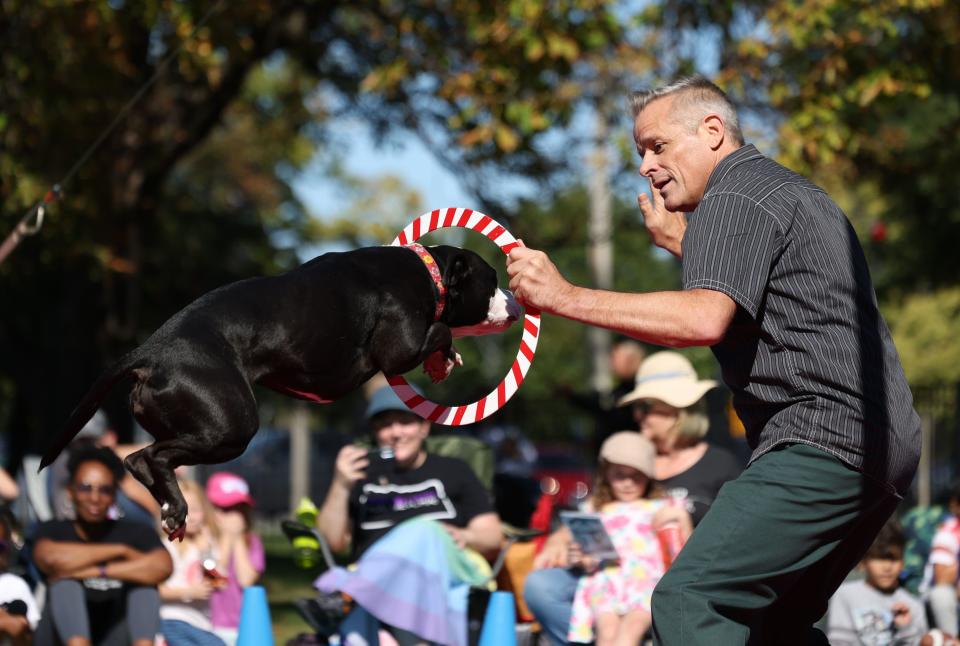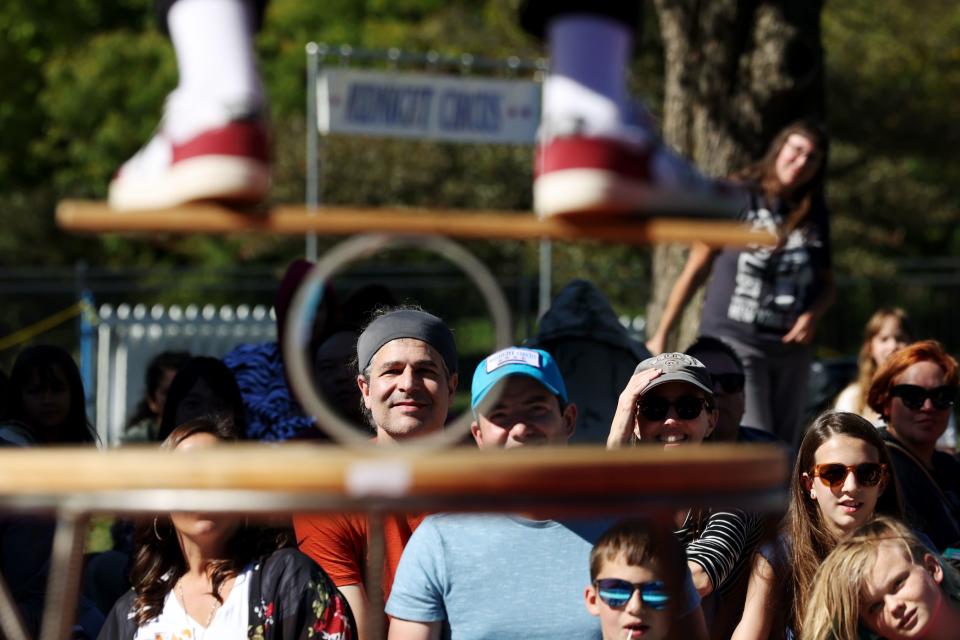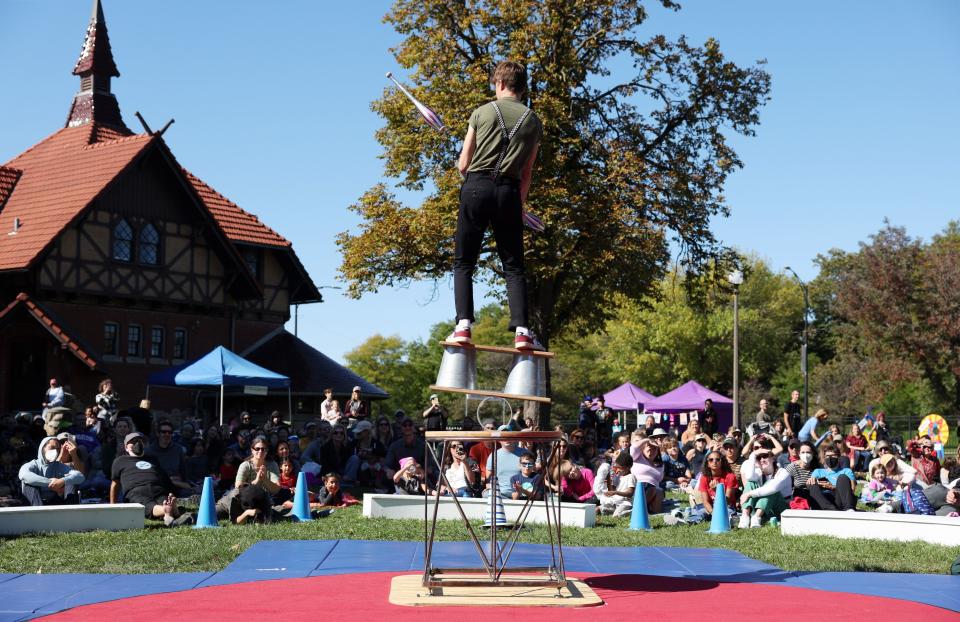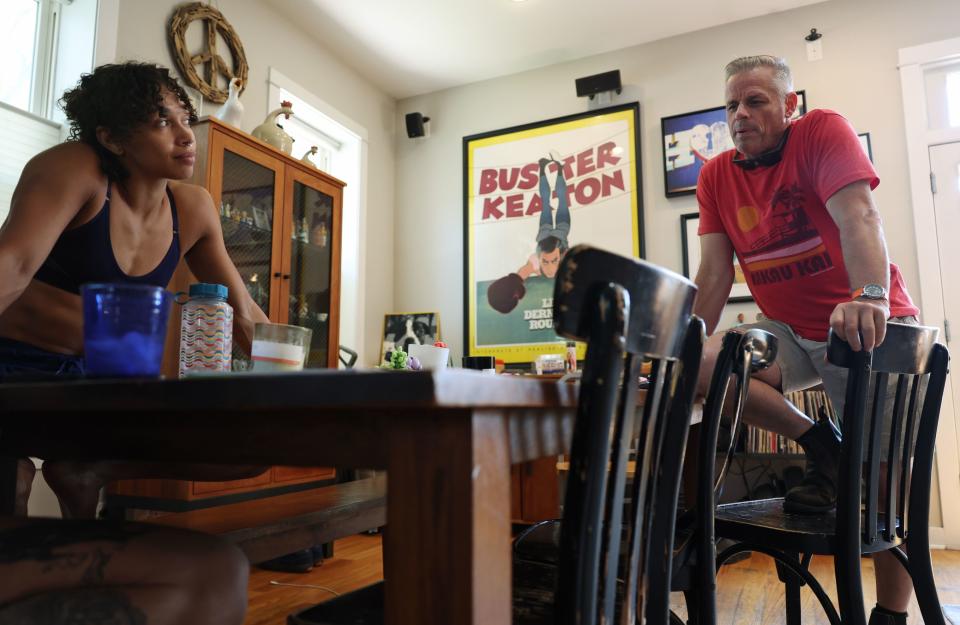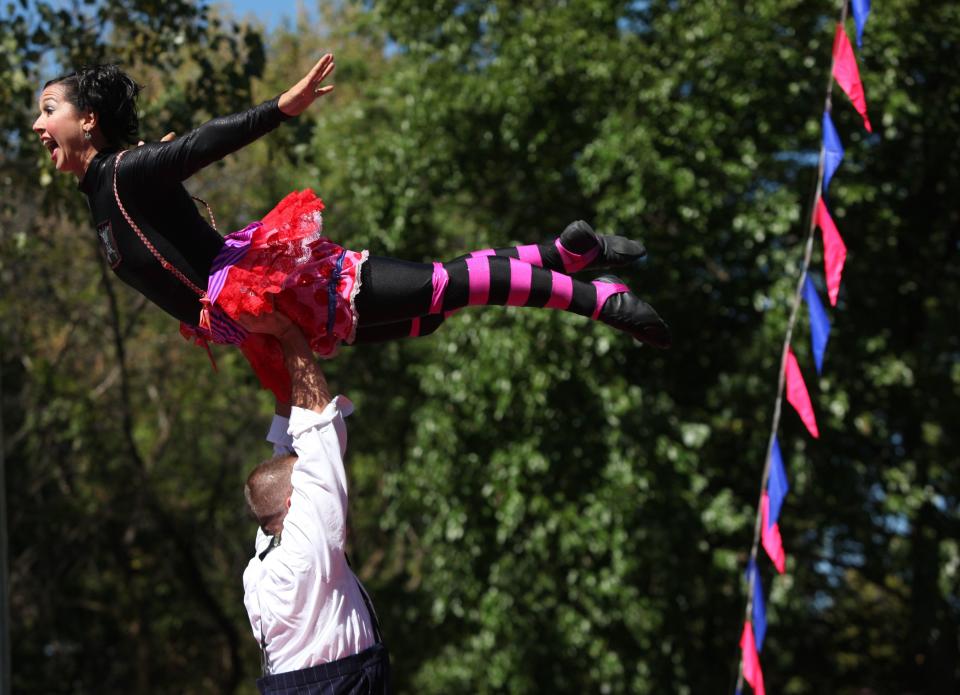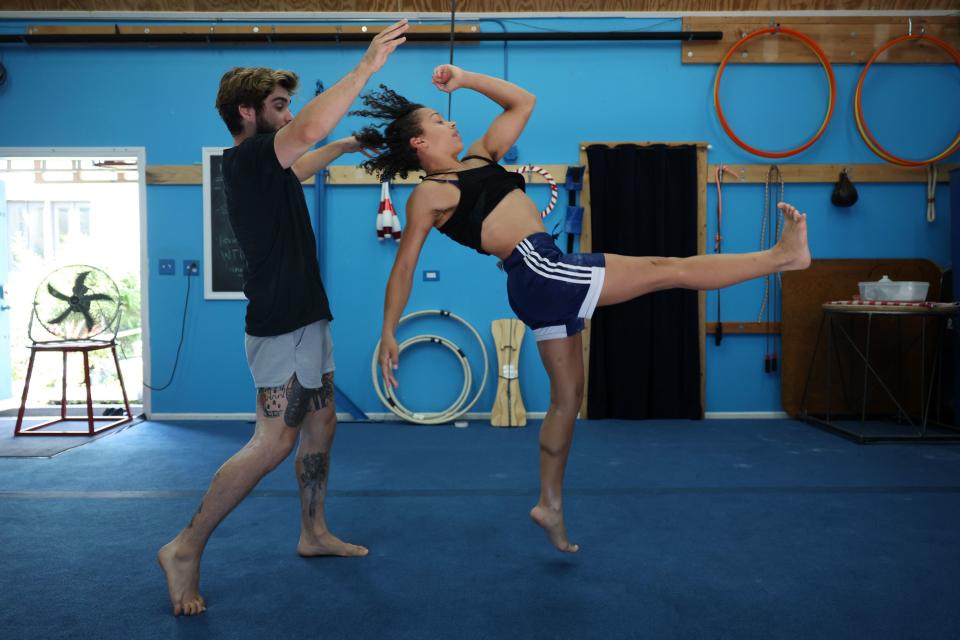Midnight Circus thrown for a loop with new Park District requirement, scales back performances
As a child, Isabella “Bella” Diaz never imagined she could make a living doing flips.
A Chicago native, Diaz grew up doing gymnastics in Peterson and Harrison parks and went on to study dance at Western Michigan University. She’s been a performer for the past seven years, most recently working for the nonprofit organization Midnight Circus, a unique combination of theater and circus arts that has offered outdoor performances in parks around the city for nearly two decades.
But Diaz, along with about a dozen other performers who work for the circus, are mourning a recently announced cutback schedule this summer. The organization had to reduce its programming from six weekends in a row to one because of a change in eligibility requirements for art programs to receive Chicago Park District funding and resources, according to Park District officials and Jeff Jenkins, the ringmaster and executive director of the circus.
Its only performances of the season will take place Sept. 8-10, with six shows scheduled in Welles Park in Lincoln Square.
“It’s devastating because there are so many communities in Chicago that really benefit from the public support of the city and arts funding,” said Diaz, who grew up in the Austin neighborhood. “This is how we get arts to these communities that can’t afford to get it there themselves.”
Jenkins started Midnight Circus in 2007 with his wife, Julie Greenberg. The two have focused on making circus art accessible. In 2013, they expanded the circus programming from parks in the North Side to the South and West sides. They scaled their ticket prices from $5 to $25, depending on what people in the community could afford, Jenkins said. Community partners worked with them to set their own pricing.
Midnight Circus aims to bring world-class circus performances to every corner of Chicago in the summer, Jenkins said. They take a portion of circus funds and give them back to the Park Advisory Council, to volunteers who will help bolster the parks.
“And that’s why it works,” he said. “Because everybody has a stake in it. Everybody. We do, the volunteers do, the local businesses that sponsor it, the Park District.”
The group’s efforts to push programming across the city had enormous success, according to Jenkins. He said Midnight Circus’ expansion in part led to the formation of the Park District’s Night Out in the Parks program, which helps fund free and accessible performances and events in 77 communities across Chicago, according to Chicago Park District spokesperson Irene Tostado.
“We are not NASCAR, we are not Lollapalooza, we are not Riot Fest, and I say that with great pride,” Jenkins said.
But a loophole with admission costs this year made them ineligible to be included in the initiative, Jenkins said — “The very initiative that we inspired.”
To receive Park District funding and resources, artists cannot charge for event admission, Tostado said in a statement. “The Midnight Circus’ 2023 plan did not meet the eligibility requirement to receive support as part of this initiative,” she said.
The Park District met with Midnight Circus to plan a hybrid model where some performances would be offered to the community free of charge, but Jenkins and Greenberg opted to continue with ticketed events at Welles Park, Tostado said in her statement.
Charging some — not a lot, and on a sliding scale — is important to Midnight Circus, Jenkins said. It helps them to pay performers and ensure a high-quality performance.
“When Chicagoans are eager to pay a reasonable price to see a spectacular piece of art or culture in their park, wouldn’t you want to take advantage of that? Wouldn’t you want everyone to have to stake in on that?” he asked.
Midnight Circus was the first American company invited to the esteemed Montréal Complètement Cirque Festival. Their 2022 season brought more than 15,000 Chicagoans to celebrate circus arts.
Diaz — who does everything from Chinese pole to hoop diving, as well as general acrobatics — has been with Midnight Circus for the past two years. She was working with a cruise ship called Virgin Voyages and living in New York when the pandemic hit and she went home for the first time since college. She saw Midnight perform in 2020 and was hooked.
After doing gymnastics as a little girl, she went to The Chicago High School for the Arts, where she discovered she could more easily pursue a career in dance. She said contemporary circus art combines her two passions.
“I feel like in dance, there’s a little bit of a wall between you and the audience,” she said. “And in circus, you’re trying to get everyone to laugh at the same time or clap at the same time. You’re trying to get everyone on the same team.”
If Diaz hadn’t been around artists in high school, she said, she wouldn’t have known it was a viable career path. She said circus performing allows her to push herself to try new types of art — expressing herself in new ways on stage.
“I’m not classically trained or anything. But this is more encouraging a sense of play. And I think that that sense of play is really contagious,” she said about the circus.
Diaz said she was at home when she got a call from Greenberg, who told her through tears they were reducing summer performances. She was drawn to Midnight Circus for the services it provides to communities across Chicago, she said, and the current schedule is not the true fulfillment of its mission.
Despite cutbacks, all of the artists who were planning to stay for the duration of the tour will be at the shows in Welles Park, she said.
And in the interim, Diaz is adjusting to one weekend of shows instead of months. She will pick up side jobs and teach private circus lessons. She has upcoming performances with a Montreal-based company called Seven Fingers, which performs around the country.
Jenkins said there were always moments on tour when he could tell someone in the audience was seeing the circus for the first time.
“And you could see these kids’ eyes light up,” he said. “They couldn’t believe they went to school in the morning and then they walked back and there were purple and blue tents. And then you go inside and there are superheroes.”
Brooke Rourke, a fan and longtime circusgoer who lives in the North Center neighborhood, said her four kids have benefited over the years from seeing brilliant circus acts right in their backyard.
“The best part is they do a dance party at the end, and all the kids go into the ring and dance together. They feel like they’re performing. They’re on the stage dancing,” she said.
The circus is coming to their park, but it’s not the case for so many others, she said.
Jenkins said he and his wife want the Park District and City Hall leaders to support Midnight Circus at a realistic level so it can once again reach children and families in every corner of Chicago. They want the city to allow Midnight Circus to charge appropriate ticket prices to raise money for its community partners.
They are committed to making their services accessible, and even added a special performance Saturday for more than 500 children and adults from the Illinois Department of Children and Family Services, as well as 200 more newly arrived families from across the city.
“Emotionally, it’s a gut punch. We have invested so much and I just feel like our community partners — these kids and families across Chicago — we collectively deserve better,” Jenkins said.
Tickets went on sale for the weekend in September and sold out in a few hours, said Jenkins, with over 5,000 people planning to attend.
